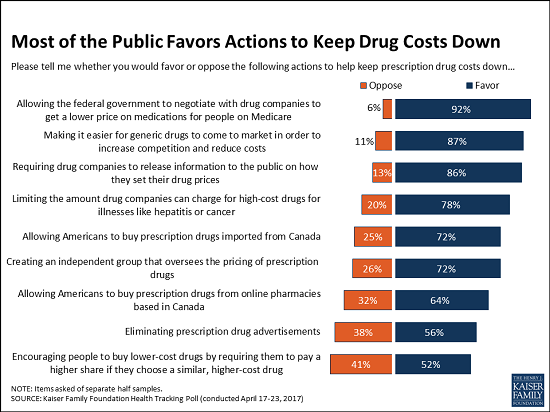Investors from the Interfaith Center on Corporate Responsibility (ICCR) say new policies are needed to reign in drug costs
NEW YORK, April 27, 2011 /PRNewswire-USNewswire/ -- As the skyrocketing costs of brand name drugs leave millions of Americans skipping doses or abandoning their prescriptions, investors representing 14 faith and health care organizations are petitioning the nation's top pharmaceutical companies to re-examine pricing for commonly used drugs like Lipitor, Plavix and Celebrex in an effort to make them more affordable.
The group is citing several benchmarking reports including one from the General Accountability Office this past February that found branded drugs consistently outpacing generics relative to inflation (6.3% vs. 3.8%). ICCR members are asking management for pricing that hews closer to the consumer price index, a strategy they believe is a more accurate reflection of value and a more sustainable policy over the long term.
The Centers for Medicare and Medicaid Services projects that U.S. prescription drug spending will grow 93% during 2008-2018, exceeding all major categories of health expenditures. AARP reports that the branded prescriptions most widely used by Medicare patients increased 9.7%, far exceeding the cost for other consumer goods in the last 12 months: prices for generics during the same time period fell. ANovember 2010 report from Deloitte Consulting concluded that the issue will intensify, and that current pricing practices are not sustainable.
"The evidence from all the studies is clear, " said Ed Gerardo, director, Community Commitment and Social Investments of Bon Secours Health System, Inc. " Measures must be taken to control costs and bring transparency into the drug pricing equation."
Resolutions are on the ballots at the nation's top pharmaceutical companies including Johnson and Johnson, Abbott, Bristol-Myers Squibb and Pfizer, requesting that management utilize a combination of approaches to keep drug prices at reasonable levels.
ICCR members have been in dialogue with pharmaceutical companies for decades on issues of access and affordability.
Cathy Rowan, consultant to Trinity Health, said, " Many of us represent health care systems with missions to enhance the health of the communities they serve. We would like to see the pharmaceutical companies in which we invest have access to medicines at the heart of their business strategies."
"This isn't about charity or foregoing a profit," said Laura Berry, Executive Director of ICCR. "Our members expect that the companies they invest in espouse policies, pricing and otherwise, that promote both justice and sustainability while enhancing shareholder value. The absence of clear and reasonable pricing policies is neither just for consumers nor sustainable as a business practice."
Barbara Aires, coordinator, Corporate Responsibility, the Sisters of Charity of St Elizabeth, said, " It's hard to justify these increases in this economy. More and more, people have to choose between buying groceries and picking up their prescriptions and when people can't afford to take their medicines they get sick, straining an already fragile health care system. Our company needs a rational pricing policy that keeps branded products affordable and accessible to consumers yet will remain competitive to generics when patents expire."
About the Interfaith Center on Corporate Responsibility ( www.iccr.org ):
Currently celebrating its 40th year, ICCR is the pioneer coalition of active shareholders who view the management of their investments as a catalyst for change. Its 300 member organizations with over $100 billion in AUM have an enduring record of corporate engagement that has demonstrated influence on policies promoting justice and sustainability in the world.
SOURCE Interfaith Center on Corporate Responsibility

